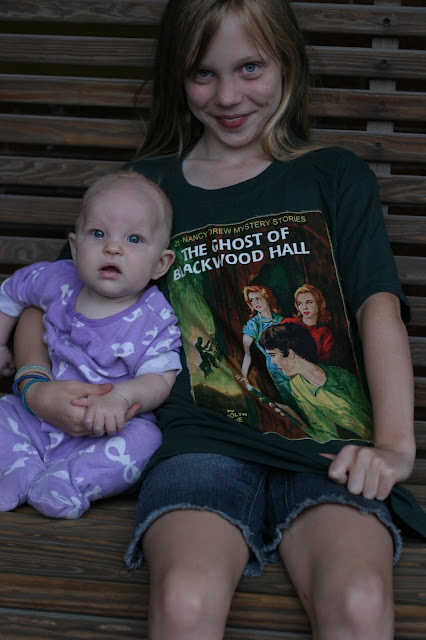So my husband purchased a
Harper’s magazine for his beach reading a few weeks ago. And there was the author of
Bringing Up Bébé, Pamela Druckerman,
reflecting on her book. I had forgotten
about her book – I had never read it, although
I read the other Frenchy books: French Kids Eat Everything and
French Women Don’t Get Fat. I found value in both those books, although
it’s extremely tempting to lump the trio together for scorn and jokes and
pro-American sentiment.
Then,
two of the beach girls mentioned how much they wished
they had read
Bringing Up Bebe when
they had their own small babies. I
looked at my small baby and read the book.
The immediate effect on me was liberation. I loved the idea of a patient, happy baby and
a sane life not dictated by boring baby needs (note: this is not exactly what
Druckerman claims, but rather the conclusion that I drew).
A fellow blogger pointed out a few weeks ago
that days with an infant can be long and boring; I instantly felt relief and
recognition when she described that feeling I was trying not to feel. I am a homebody homemaker and I love being a
mother, but yes, heaven help me, I need some stimulation besides baby life all
day!


But, back to Bringing
Up Bébé: I reviewed my nighttimes with Phoebe – we weren’t doing too badly
and I had assumed in the American way that I had gotten a “good sleeper.” She had slept from 9pm to 6am a few times
since she was 3 months old, thus proving to me that she could go without milk
at night. So since then, if she fussed
in the middle of the night, I would comfort her without offering to nurse her. Younger babies usually do need milk around
the clock, but by 3 months, Druckerman says, babies can sustain their sleep at
night without milk, even if they feel a little hungry, just like kids and
adults. In fact, parents should first watch the baby (La Pause, Druckerman
jokes) when she starts fussing to see if she’s trying to go back to sleep or
what; apparently, kids and adults wake up between sleep cycles and put
themselves right back to sleep without even remembering it; that’s the goal for
the babies, to learn that automatic self-soothing right back to sleep.
I found this perspective incredibly helpful. It also rings true with my previous
babies. And further chapters had more
sensible advice on manners, sensory exploration, eating, vacationing, and adult
life.

Towards the end of
the book, I began to try to read between the lines to see what the downfalls of
French parenting might be. Breastfeeding
is actively discouraged (mothers can return to “normal” faster). Children seem
to spend almost as much time away from their parents as with their
parents. From a young age, sometimes
less than a year old, they go to nursery schools and childcare; the care is
excellent and personal, but the pattern continues of French children
essentially outsourced to other caregivers, taking week-long field trips in
kindergarten and so on. I’m guessing
this makes for rather distant, formal relationships between parents and children. The French government also pays for much of
the schooling, medical care, maternal care, and extras; there are very few
stay-at-home parents in France because the childcare is so easily available.
I’m still ruminating on this book, so we’ll see what stays
with me long-term. For now, here are my
take-aways:
1. Give Phoebe some time when she starts fussing so she and
I can figure out what’s needed. Develops
patience in her. La Pause.
2. Encourage her to amuse herself with very little, to let
her explore her world on her own terms.
This is the opposite of Baby Einstein and constant stimulation to speed
up development.
3. Tell Phoebe what is going on and my reasons for what I’m
doing with her (the French really believe that babies can understand such talk
on an intuitive level – it sure makes me feel better about driving the last 10
minutes when she’s screaming if I’ve first explained to her that I will nurse
her when we get home).
4. Give serious attention to my marriage as the primary
relationship in our family. Feel and
feed my status as a beloved wife and lover.
My parents were an excellent example of this and their love made for a
secure family life. I’ve been guilty of
attending to the urgent, noisy needs of the kids and feeling grateful if my husband
doesn’t appear to need me so I can creep away for silence. Can I be a good mother, partner, and introvert? We’ll see!



































